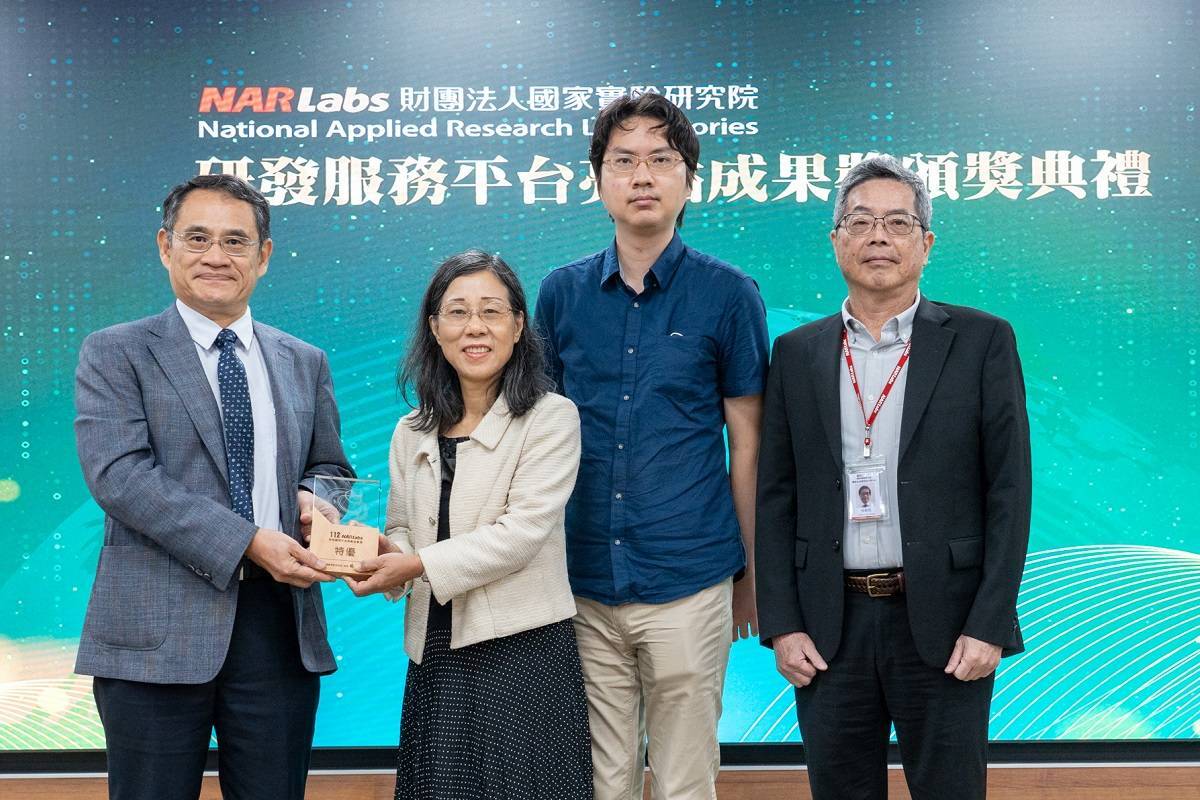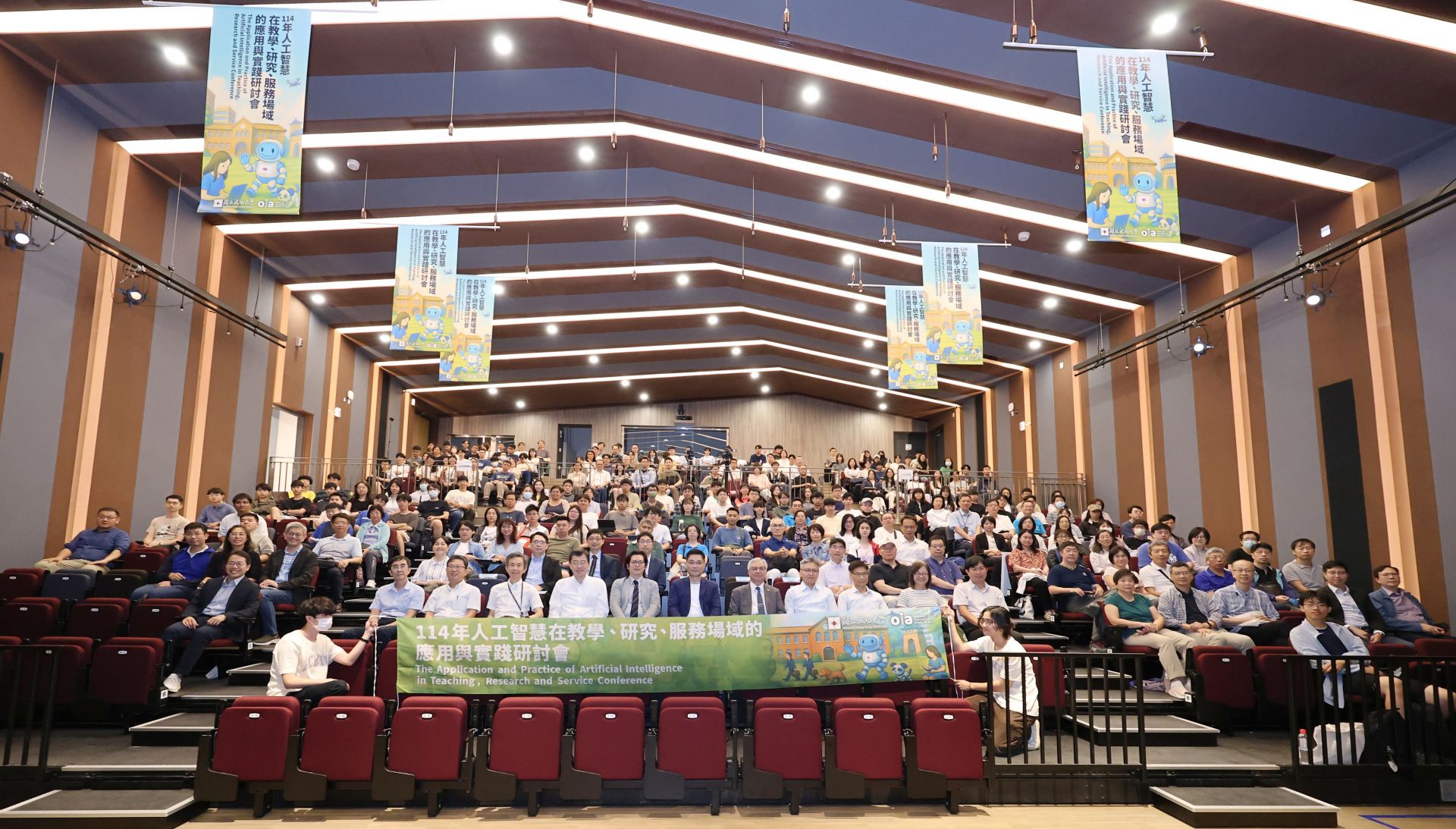SDG9
2024 NCKU Digital Humanities Project Exhibition: Showcasing the Integration of Humanities and Digital Technology
The opening ceremony of the "2024 NCKU Digital Humanities Project Exhibition" took place on September 30 at the Historical Artifact Museum on the Kuang-Fu Campus. The exhibition highlights NCKU’s execution of the "Ministry of Education’s Second Phase Digital Humanities Talent Development Plan," centered around the "Digital Humanities Specialization Micro-Curriculum." Through 12 interdisciplinary courses, the program aims to equip students from humanities and social sciences backgrounds with digital competencies and cross-disciplinary innovation capabilities to address and implement humanities-related issues.
Vice President Yu-Nu Chen emphasized in her speech that in an era of rapid advancements in digital technology and artificial intelligence, it is essential to integrate technology into the humanities while fostering humanistic thinking and literacy among those with technical backgrounds. She noted that the exhibition demonstrates the diverse facets of interdisciplinary education and the practical outcomes of the digital humanities field.
Dean Shi-Mei Gao of the College of Liberal Arts expressed gratitude to all participating faculty for their dedication in designing diverse courses that guided students into unfamiliar fields, blending technology with humanities. She also acknowledged the Ministry of Education for its guidance, which provided students with new perspectives and creativity.
Professor Zhou Jun-Rui, the director of the NCKU Digital Humanities Project, noted that the integration of humanities and digital technologies in this digital era introduces unprecedented opportunities and challenges in education. He stressed that education requires long-term commitment and resource investment to continuously renew teaching content. He hopes to see digitally innovative and cross-disciplinary talent in various industries in the future.
Courses in the "Digital Humanities Specialization Micro-Curriculum" include:
Film Art and Life
Pandemic Archeology: Building Your Own COVID-19 Relic Museum
Pandemic Archeology: Telling Human Rights Stories Through COVID-19 Artifacts
Drama Literature Studies
Theater Curation and Arts Administration
Information Management
Designing Futures
Applications of Artificial Intelligence in Social Sciences
Introduction to Architecture
Performing Arts and Administrative Management
Digital Preservation and Applications of Siraya Language and Culture
Data Mining and Machine Learning in Political Science.
A total of 651 students have enrolled in these courses, with 76% coming from humanities backgrounds. These courses bring together scholars and industry experts to integrate diverse elements into the curriculum.
Exhibition Overview
The exhibition, held from September 27 to October 4, is divided into three main sections presented through display boards:
Understanding NCKU's "Digital Humanities": Introducing the project’s concepts and micro-curriculum framework.
Digital Humanities Micro-Curriculum Outcomes: Highlighting course results.
Innovative Digital Humanities Talent: Showcasing individuals who exemplify the program's goals.
The core of the exhibition lies in the "Digital Humanities Micro-Curriculum Outcomes," explained through course maps that outline learning pathways and applications of digital skills. The outcomes are categorized into:
Embracing the Future: Featuring Designing Futures and Introduction to Architecture, which explore digital tools like generative AI in design. Students created sustainable and creative "Tainan 400" commemorative items and transformed Tainan’s architectural heritage into cultural and creative products.
Engaging with History: Highlighting Pandemic Archeology courses that examine the COVID-19 pandemic from a historical perspective, equipping students with skills to use digital tools for humanities archiving.
Applications of Digital Skills – Industry and Society: Showcasing courses like Information Management and AI in Social Sciences, focusing on practical applications of technology in industry and society.
Applications of Digital Skills – Artistic Expression: Featuring courses such as Film Art and Life and Theater Curation and Arts Administration, which blend generative AI and virtual tools to create art in forms like exhibitions, stories, and AI-generated music.
Applications of Digital Skills – Language and Text: Including Drama Literature Studies, Data Mining and Machine Learning in Political Science, and Digital Preservation of Siraya Language. These courses trained students in database creation, text analysis, and developing interactive and AR-based educational materials.
The 2024 NCKU Digital Humanities Project Exhibition presents a vivid illustration of how interdisciplinary education can bridge the gap between humanities and technology, fostering innovative talent for the future.
Vice President Yu-Nu Chen emphasized in her speech that in an era of rapid advancements in digital technology and artificial intelligence, it is essential to integrate technology into the humanities while fostering humanistic thinking and literacy among those with technical backgrounds. She noted that the exhibition demonstrates the diverse facets of interdisciplinary education and the practical outcomes of the digital humanities field.
Dean Shi-Mei Gao of the College of Liberal Arts expressed gratitude to all participating faculty for their dedication in designing diverse courses that guided students into unfamiliar fields, blending technology with humanities. She also acknowledged the Ministry of Education for its guidance, which provided students with new perspectives and creativity.
Professor Zhou Jun-Rui, the director of the NCKU Digital Humanities Project, noted that the integration of humanities and digital technologies in this digital era introduces unprecedented opportunities and challenges in education. He stressed that education requires long-term commitment and resource investment to continuously renew teaching content. He hopes to see digitally innovative and cross-disciplinary talent in various industries in the future.
Courses in the "Digital Humanities Specialization Micro-Curriculum" include:
Film Art and Life
Pandemic Archeology: Building Your Own COVID-19 Relic Museum
Pandemic Archeology: Telling Human Rights Stories Through COVID-19 Artifacts
Drama Literature Studies
Theater Curation and Arts Administration
Information Management
Designing Futures
Applications of Artificial Intelligence in Social Sciences
Introduction to Architecture
Performing Arts and Administrative Management
Digital Preservation and Applications of Siraya Language and Culture
Data Mining and Machine Learning in Political Science.
A total of 651 students have enrolled in these courses, with 76% coming from humanities backgrounds. These courses bring together scholars and industry experts to integrate diverse elements into the curriculum.
Exhibition Overview
The exhibition, held from September 27 to October 4, is divided into three main sections presented through display boards:
Understanding NCKU's "Digital Humanities": Introducing the project’s concepts and micro-curriculum framework.
Digital Humanities Micro-Curriculum Outcomes: Highlighting course results.
Innovative Digital Humanities Talent: Showcasing individuals who exemplify the program's goals.
The core of the exhibition lies in the "Digital Humanities Micro-Curriculum Outcomes," explained through course maps that outline learning pathways and applications of digital skills. The outcomes are categorized into:
Embracing the Future: Featuring Designing Futures and Introduction to Architecture, which explore digital tools like generative AI in design. Students created sustainable and creative "Tainan 400" commemorative items and transformed Tainan’s architectural heritage into cultural and creative products.
Engaging with History: Highlighting Pandemic Archeology courses that examine the COVID-19 pandemic from a historical perspective, equipping students with skills to use digital tools for humanities archiving.
Applications of Digital Skills – Industry and Society: Showcasing courses like Information Management and AI in Social Sciences, focusing on practical applications of technology in industry and society.
Applications of Digital Skills – Artistic Expression: Featuring courses such as Film Art and Life and Theater Curation and Arts Administration, which blend generative AI and virtual tools to create art in forms like exhibitions, stories, and AI-generated music.
Applications of Digital Skills – Language and Text: Including Drama Literature Studies, Data Mining and Machine Learning in Political Science, and Digital Preservation of Siraya Language. These courses trained students in database creation, text analysis, and developing interactive and AR-based educational materials.
The 2024 NCKU Digital Humanities Project Exhibition presents a vivid illustration of how interdisciplinary education can bridge the gap between humanities and technology, fostering innovative talent for the future.

2024 NCKU Digital Humanities Project Exhibition Opening Group Photo

Vice President Yu-Nu Chen Delivers Opening Remarks at the Ceremony

The 2024 NCKU Digital Humanities Project Exhibition showcases results through display boards, featuring textual explanations and course maps.

The NCKU Dance Research Club Performs at the Opening Ceremony

Diabolo Performance at the Opening Ceremony






















